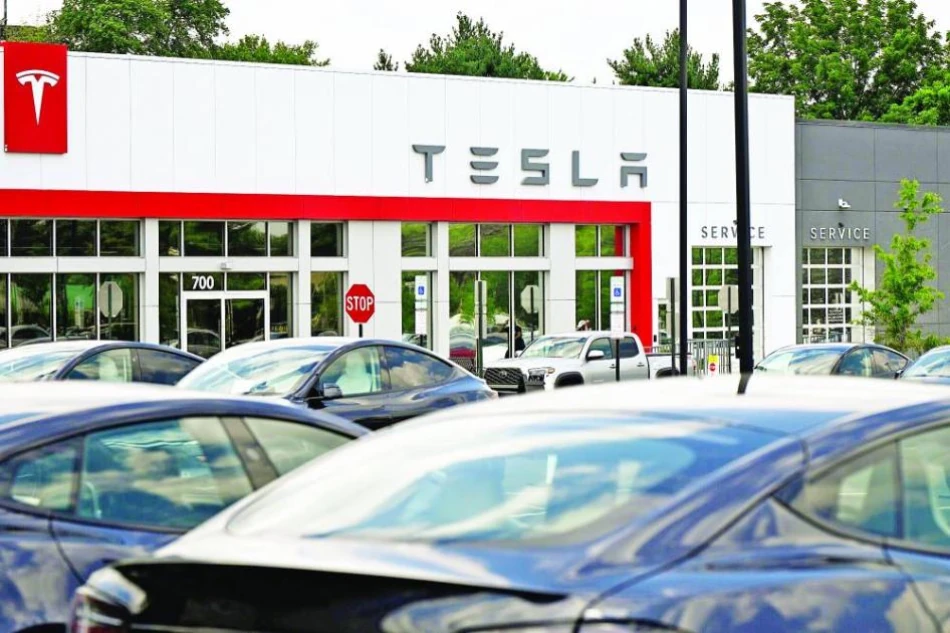
Tesla Explores Powering UK Amid Sluggish Sales: Innovative Energy Solutions in the Spotlight
Tesla Pivots to Power: EV Giant Eyes UK Energy Market Amid European Sales Slump
Tesla has formally applied to Britain's energy regulator Ofgem for an electricity supply license, marking a strategic diversification as the electric vehicle pioneer faces a steep 60% decline in European car sales. The move positions Elon Musk's company to challenge established energy giants like Centrica and Octopus Energy in the UK's competitive power market, potentially launching operations as early as next year.
Beyond Cars: Tesla's Energy Ambitions Take Shape
The application represents more than just market expansion—it signals Tesla's evolution from a car manufacturer into a comprehensive energy ecosystem company. Tesla already operates solar generation systems and battery storage products globally, and has established itself as a significant electricity supplier in Texas over the past three years.
This vertical integration strategy allows Tesla to leverage its core competencies in battery technology and energy management across multiple revenue streams. The company's Powerwall home batteries and Megapack utility-scale storage systems have gained traction worldwide, creating natural synergies with direct energy supply services.
Timing Reveals Strategic Necessity
Tesla's UK energy push comes at a critical juncture for the company's European operations. Recent data shows Tesla's new car sales in Europe plummeted to just 987 units last month, down from 2,462 vehicles in the same period last year—a dramatic 60% decline that underscores growing competitive pressure from European automakers and Chinese EV manufacturers.
This sales decline reflects broader challenges facing Tesla in mature markets, where traditional automakers like Volkswagen, BMW, and Mercedes have launched compelling electric alternatives while Chinese competitors like BYD offer lower-priced options.
UK Market Dynamics Favor New Entrants
Britain's deregulated energy market presents an attractive opportunity for Tesla's expansion. Unlike many European markets with dominant state utilities, the UK allows new suppliers to compete directly for residential and commercial customers. The market has seen successful disruption from companies like Octopus Energy, which grew rapidly by offering competitive pricing and innovative customer service.
Tesla's entry could capitalize on several trends: rising energy costs, growing consumer interest in renewable sources, and increasing adoption of home energy storage systems. The company's brand recognition and technology focus may appeal to environmentally conscious consumers seeking alternatives to traditional energy suppliers.
Investor Implications and Market Response
For investors, Tesla's energy diversification offers both opportunity and questions about focus. The energy business could provide more stable, recurring revenue compared to the cyclical automotive sector, but it also requires different expertise and faces distinct regulatory challenges.
Energy supply typically operates on lower margins than car manufacturing, but offers predictable cash flows and customer relationships that could support Tesla's broader ecosystem of products and services. Success in the UK could serve as a template for expansion into other European markets.
Competitive Landscape Shifts
Tesla's potential entry threatens established players like Centrica, which operates British Gas, and newer competitors like Octopus Energy. However, the company will face significant challenges including regulatory compliance, customer acquisition costs, and the operational complexity of energy trading and grid management.
The move mirrors strategies employed by tech companies entering traditional industries—leveraging brand strength and technological capabilities to disrupt established markets. Tesla's success will depend on its ability to offer genuine value beyond novelty, whether through pricing, service quality, or integration with its existing product ecosystem.
Most Viewed News

 Omar Rahman
Omar Rahman






